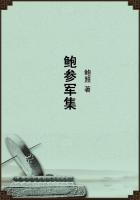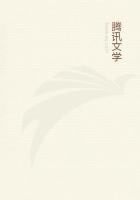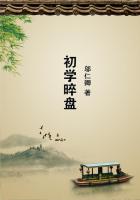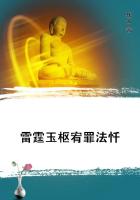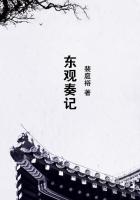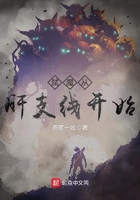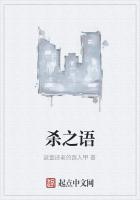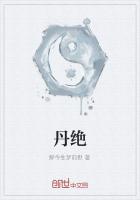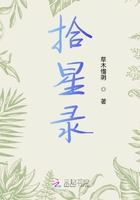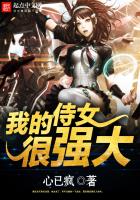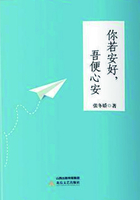There is an enormous difference by the test of fairyland; which is the test of the imagination. You cannot IMAGINE two and one not ****** three. But you can easily imagine trees not growing fruit; you can imagine them growing golden candlesticks or tigers hanging on by the tail. These men in spectacles spoke much of a man named Newton, who was hit by an apple, and who discovered a law.
But they could not be got to see the distinction between a true law, a law of reason, and the mere fact of apples falling. If the apple hit Newton's nose, Newton's nose hit the apple. That is a true necessity: because we cannot conceive the one occurring without the other.
But we can quite well conceive the apple not falling on his nose; we can fancy it flying ardently through the air to hit some other nose, of which it had a more definite dislike. We have always in our fairy tales kept this sharp distinction between the science of mental relations, in which there really are laws, and the science of physical facts, in which there are no laws, but only weird repetitions. We believe in bodily miracles, but not in mental impossibilities. We believe that a Bean-stalk climbed up to Heaven; but that does not at all confuse our convictions on the philosophical question of how many beans make five.
Here is the peculiar perfection of tone and truth in the nursery tales. The man of science says, "Cut the stalk, and the apple will fall"; but he says it calmly, as if the one idea really led up to the other. The witch in the fairy tale says, "Blow the horn, and the ogre's castle will fall"; but she does not say it as if it were something in which the effect obviously arose out of the cause.
Doubtless she has given the advice to many champions, and has seen many castles fall, but she does not lose either her wonder or her reason.
She does not muddle her head until it imagines a necessary mental connection between a horn and a falling tower. But the scientific men do muddle their heads, until they imagine a necessary mental connection between an apple leaving the tree and an apple reaching the ground. They do really talk as if they had found not only a set of marvellous facts, but a truth connecting those facts.
They do talk as if the connection of two strange things physically connected them philosophically. They feel that because one incomprehensible thing constantly follows another incomprehensible thing the two together somehow make up a comprehensible thing.
Two black riddles make a white answer.
In fairyland we avoid the word "law"; but in the land of science they are singularly fond of it. Thus they will call some interesting conjecture about how forgotten folks pronounced the alphabet, Grimm's Law. But Grimm's Law is far less intellectual than Grimm's Fairy Tales. The tales are, at any rate, certainly tales; while the law is not a law. A law implies that we know the nature of the generalisation and enactment; not merely that we have noticed some of the effects. If there is a law that pick-pockets shall go to prison, it implies that there is an imaginable mental connection between the idea of prison and the idea of picking pockets.
And we know what the idea is. We can say why we take liberty from a man who takes liberties. But we cannot say why an egg can turn into a chicken any more than we can say why a bear could turn into a fairy prince. As IDEAS, the egg and the chicken are further off from each other than the bear and the prince; for no egg in itself suggests a chicken, whereas some princes do suggest bears.
Granted, then, that certain transformations do happen, it is essential that we should regard them in the philosophic manner of fairy tales, not in the unphilosophic manner of science and the "Laws of Nature."
When we are asked why eggs turn to birds or fruits fall in autumn, we must answer exactly as the fairy godmother would answer if Cinderella asked her why mice turned to horses or her clothes fell from her at twelve o'clock. We must answer that it is MAGIC.
It is not a "law," for we do not understand its general formula.
It is not a necessity, for though we can count on it happening practically, we have no right to say that it must always happen.
It is no argument for unalterable law (as Huxley fancied) that we count on the ordinary course of things. We do not count on it; we bet on it. We risk the remote possibility of a miracle as we do that of a poisoned pancake or a world-destroying comet.
We leave it out of account, not because it is a miracle, and therefore an impossibility, but because it is a miracle, and therefore an exception. All the terms used in the science books, "law,"
"necessity," "order," "tendency," and so on, are really unintellectual, because they assume an inner synthesis, which we do not possess.
The only words that ever satisfied me as describing Nature are the terms used in the fairy books, "charm," "spell," "enchantment."
They express the arbitrariness of the fact and its mystery.
A tree grows fruit because it is a MAGIC tree. Water runs downhill because it is bewitched. The sun shines because it is bewitched.
I deny altogether that this is fantastic or even mystical.
We may have some mysticism later on; but this fairy-tale language about things is simply rational and agnostic. It is the only way I can express in words my clear and definite perception that one thing is quite distinct from another; that there is no logical connection between flying and laying eggs. It is the man who talks about "a law" that he has never seen who is the mystic.
Nay, the ordinary scientific man is strictly a sentimentalist.
He is a sentimentalist in this essential sense, that he is soaked and swept away by mere associations. He has so often seen birds fly and lay eggs that he feels as if there must be some dreamy, tender connection between the two ideas, whereas there is none.
A forlorn lover might be unable to dissociate the moon from lost love; so the materialist is unable to dissociate the moon from the tide.

